Anatomy of an NBA champion: Which 2023 teams fit the statistical profile?
What does a champion look like?
Anyone familiar with the pantheon of NBA champions knows certain teams have dominated - only 13 franchises have won the last 43 titles. But what do those champions have in common? Do they provide a statistical profile we can use to learn about this year's playoff competitors?
We'll look for statistical similarities among championship teams over the last 18 seasons to help us evaluate this year's field, since the NBA's current 30-team, six-division scheduling format has been in place since 2004-05. The league had also already prioritized offense by eliminating hand-checking and illegal defenses by that time, and this span is also recent enough to account for the modern importance of 3-point shooting.
Let's dig into the numbers.
Wins
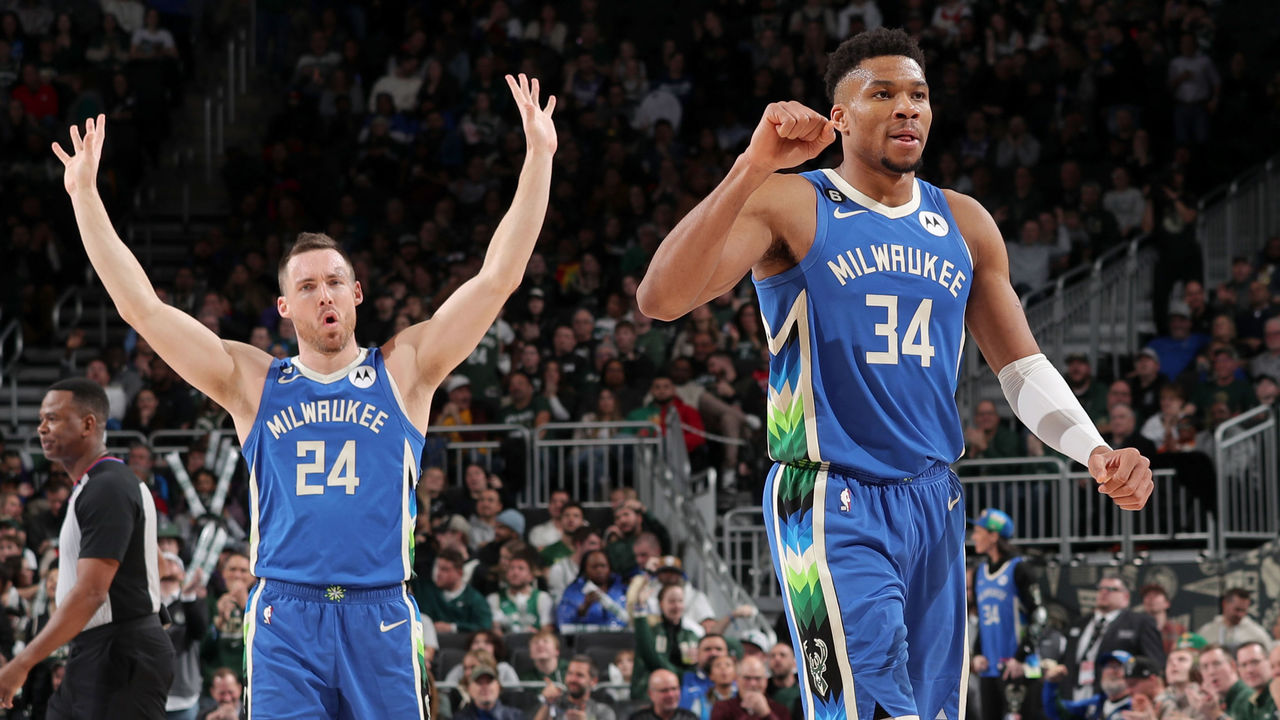
Modern champions have compiled a minimum win percentage of .634 - the equivalent of 52 wins in 82 games - and a top-seven overall record during the regular season.
That might even be a bit conservative since the winning percentage outlier, the 2005-06 Heat, produced at a 55-win pace (41-20) after Pat Riley took over coaching duties from Stan Van Gundy. Plus, they were on a 58-win pace (42-17) with Shaquille O'Neal in the lineup after the big man missed 18 of 20 games to start the campaign. The 2021 Bucks, meanwhile, used the regular season as a testing ground to prepare for the playoffs and were always better than their seventh-place finish in the overall standings.
Who fits the bill in 2023: Bucks, Celtics, 76ers, Nuggets
Potential outliers: Grizzlies, Suns, Lakers
With the Western Conference's second seed already wrapped up, the Grizzlies rested every meaningful rotation player during a season-finale loss in Oklahoma City. Had they played to win that game and recorded one more victory, they would've qualified here.
As for the Suns and Lakers, both surely would've qualified had the current versions of each team entered the season together. Phoenix went 8-0 with Kevin Durant in the lineup, while the Lakers posted a West-best record of 18-8 (.692 win percentage) after the debuts of D'Angelo Russell, Jarred Vanderbilt, and Malik Beasley on Feb. 11. Even more impressive, LeBron James played in only 11 of those 26 games.
Point differential
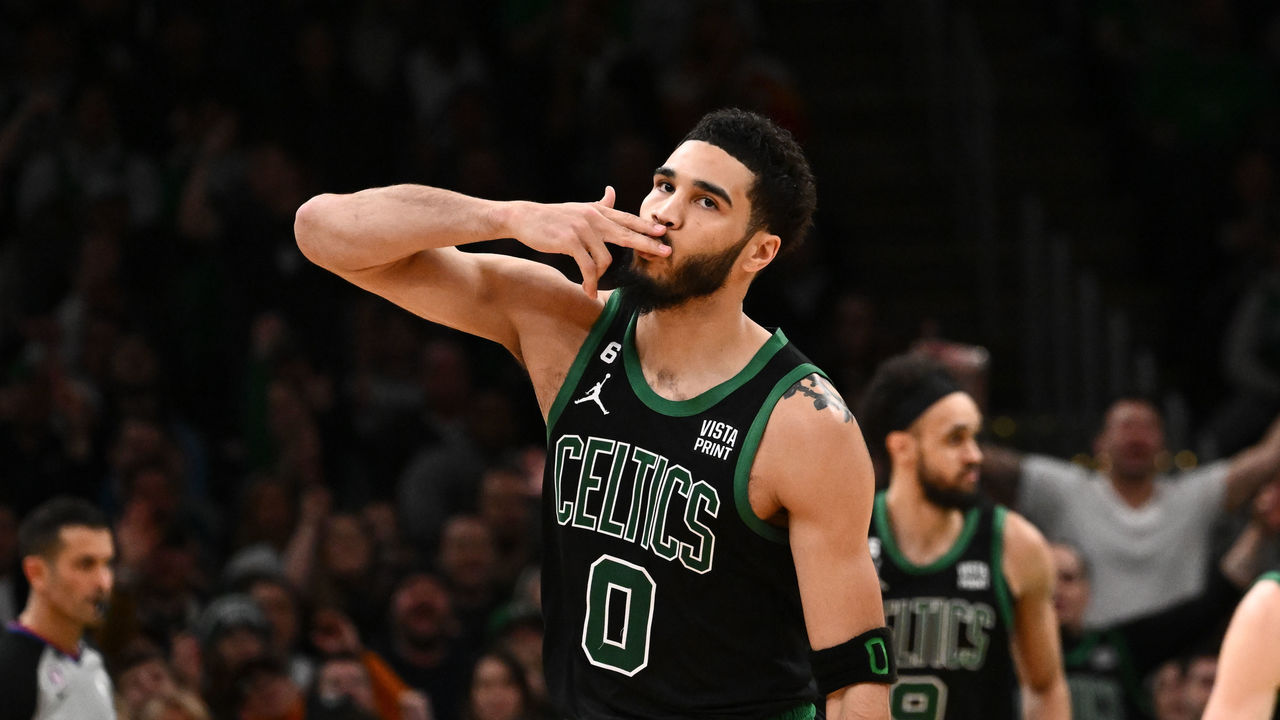
An NBA champion needs to be inside the top eight in both scoring differential and net rating per 100 possessions. Specifically, these previous champions outscored opponents during the regular season by at least 3.9 points per 48 minutes or 4.1 points per 100 possessions. The 2011 Mavs are an obvious outlier here; a top-five differential might be the more accurate cutoff.
Who fits the bill in 2023: Celtics, Cavaliers, 76ers
Potential outliers: Grizzlies, Lakers
Memphis finished just 0.1 points per 100 possessions shy of the net-rating threshold while finishing with the fourth-best point differential. The new-look Lakers would've qualified based on their performance over the 26-game sample mentioned above.
Offense
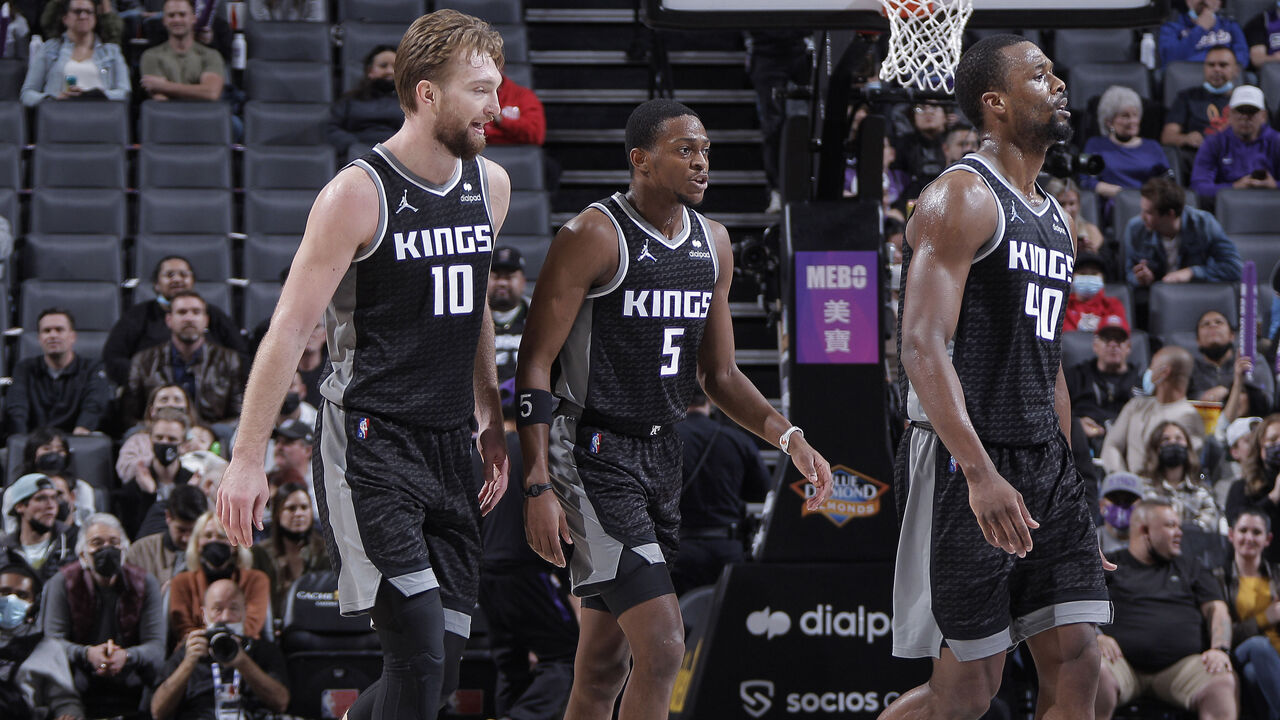
The outliers involved on the offensive end make this data the noisiest of any category.
On one hand, 15 of the last 18 champions finished with a top-nine offensive rating (points per 100 possessions), a top-six effective field-goal percentage, and a top-eight halfcourt offense. Dig deeper and you'll find that as NBA offenses have emphasized the 3-pointer, 10 of the last 11 champions finished in the top nine in 3-point shooting (with 3-point accuracy seemingly more indicative than 3-point attempt rate).
On the other hand, we can't cherry-pick which champions to include. When all 18 title-winners from the 30-team era are included, all a team needs to do to qualify as an offensively capable contender is post a top-16 mark in offensive rating and halfcourt efficiency, a top-15 effective field-goal percentage, and a top-23 3-point percentage.
Those very modest cutoffs don't really discriminate. Blame the last two championship Lakers teams (2010 and 2020) and last year's Warriors, whose mediocre regular-season numbers never told the whole story; Klay Thompson playing in only 32 games last season might help explain some of it.
Who fits the bill in 2023: Kings*, Celtics*, 76ers*, Nuggets*, Cavaliers, Warriors, Nets, Bucks. (Asterisk denotes the four teams who would've qualified even using the more exclusive cutoffs discussed above.)
Potential outliers: Nets, Suns
The Nets' championship-level offense was buoyed by stars who no longer call Brooklyn home. Since trading Durant and Kyrie Irving ahead of the deadline, the team's offense ranks 23rd. Meanwhile, Phoenix posted an offensive rating of 120.5 in the eight games Durant played, which was 1.5 points per 100 possessions better than Denver's league-leading offense.
Defense
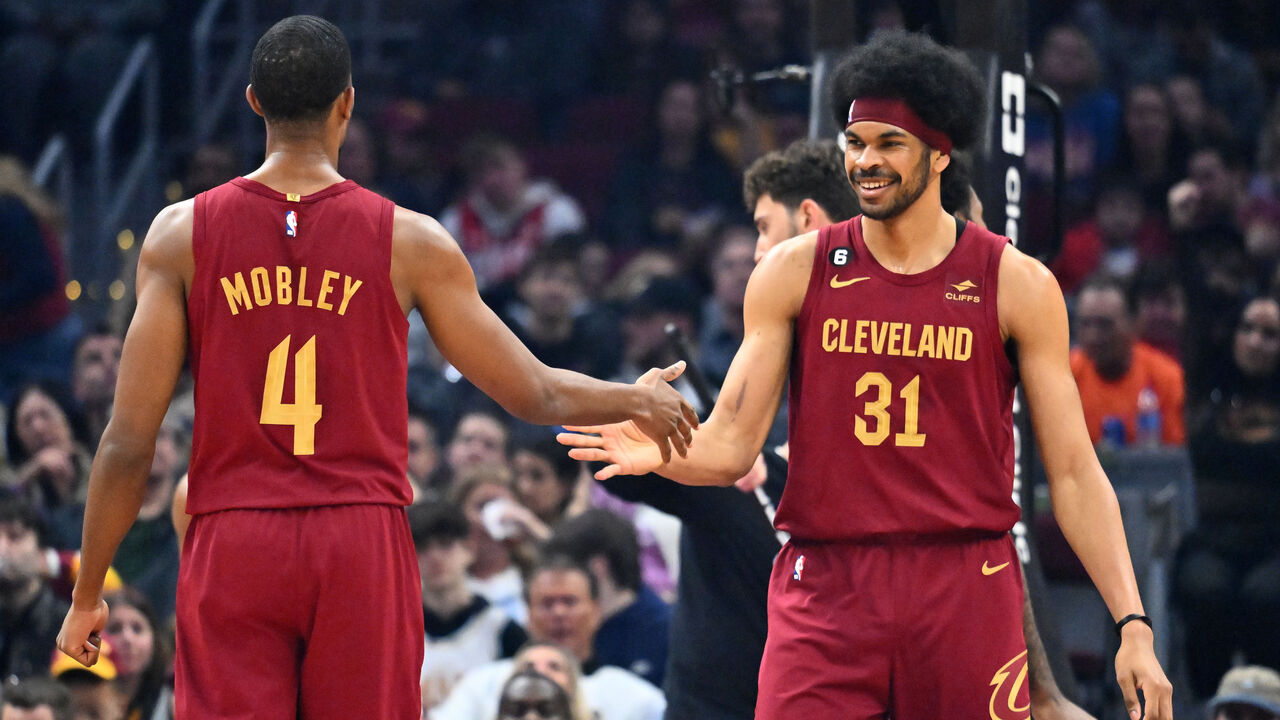
Even in what was a record-breaking NBA season offensively, how a team defended still had more of a direct correlation to winning. Two teams that boasted top-nine offenses failed to even make the play-in tournament (Dallas and Utah), and five of the league's 20 most efficient offenses failed to advance out of the regular season. Conversely, the 17 stingiest defenses - and 18 of the top 20 - all made it to at least the play-in (Orlando and Charlotte were the exceptions).
That tracks with championship history. While offense gets all the attention, every champion in our sample finished in the top 11 defensively, with at least a top-13 mark in opponent effective field-goal percentage. Fifteen of the last 18 champions finished in the top 10 in limiting opponents' effective field-goal percentage.
Who fits the bill in 2023: Cavaliers, Celtics, Grizzlies, Bucks, Suns, 76ers, Timberwolves
Potential outliers: Timberwolves, Lakers
Minnesota enters Friday's win-or-go-home game against Oklahoma City in defensive limbo. Three-time Defensive Player of the Year Rudy Gobert will return from a one-game suspension for throwing a punch at teammate Kyle Anderson, while All-Defensive team candidate Jaden McDaniels sidelined himself with a broken hand. However, in fairness to the Wolves' standing here, the team did still look stout defensively in Tuesday's loss to the Lakers.
Meanwhile, the team that beat the Wolves to claim the West's seventh seed would've qualified here easily if the new-look Lakers had been together all season. Since the Feb. 11 cutoff, Los Angeles owns the league's second-best defensive rating and second-lowest opponents' effective field-goal percentage.
Home vs. road
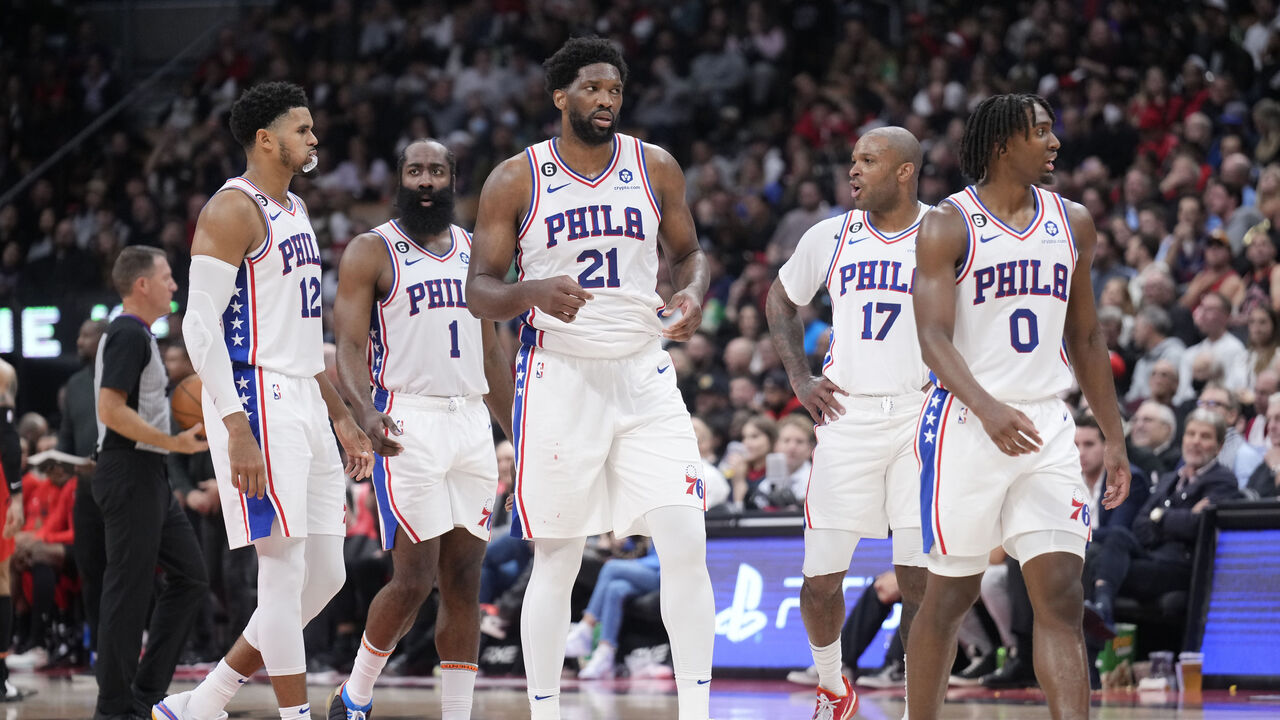
Historically, a team that excels no matter where it plays has the best chance to contend. For this exercise, we're looking for teams that dominate at home (modern champions post a minimum home win percentage of .707) while also recording a winning road record.
A more balanced NBA this season resulted in fewer teams winning on the road, with home-court advantage being one of the few separating factors during a campaign of unprecedented parity. Only seven teams posted winning road records this season, compared to 12 last campaign.
Who fits the bill in 2023: Bucks, Celtics, 76ers
Potential outliers: Cavaliers, Lakers
Cleveland went 31-10 at home but finished 20-21 on the road, falling one win short of qualifying. As for the Lakers, stop me if you've heard this before, but the post-trade version of this team would've qualified here. Los Angeles went 10-4 at home and 8-4 on the road.
Star talent
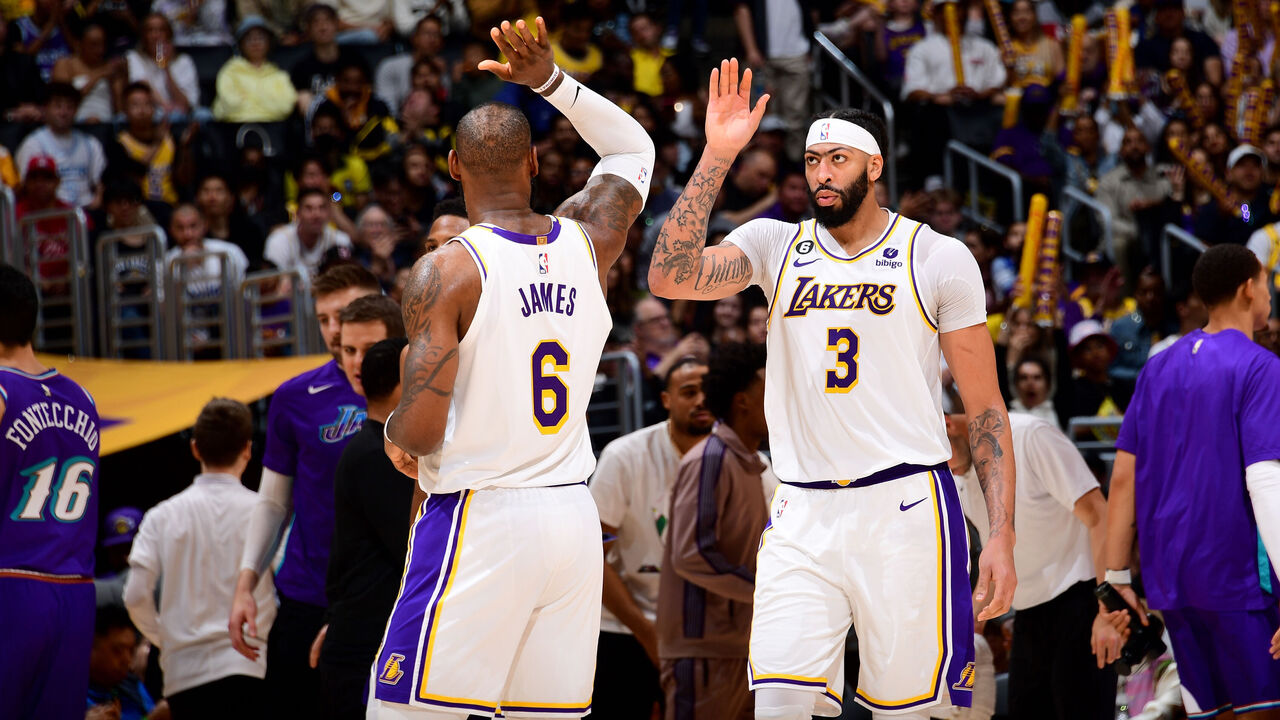
The postseason - and the Finals, especially - are about transcendent talent. Depth can carry you to the playoffs, and an All-Star can perhaps drag you into the second or third round. But if you want to compete in June, you need a Hall of Fame type - a generational superstar. There's a reason 38 of the last 43 NBA Finals have featured at least one of LeBron James, Tim Duncan, Kobe Bryant, Shaquille O'Neal, Michael Jordan, Magic Johnson, or Larry Bird. Throw in names like Giannis Antetokounmpo, Stephen Curry, Kevin Durant, Kawhi Leonard, Hakeem Olajuwon, and Isiah Thomas, and you've covered all 43.
There's no way to quantify with 100% accuracy where players rank individually. But one tool, made famous by Bleacher Report's Andy Bailey, determines how stars stack up based on their average rank across a plethora of catch-all stats. According to that data, each of the last 18 champions has employed a player who ranked in the top 15 during the regular season. When you consider how flawless the 2014 Spurs were, and how much better than 15th Leonard was in 2019 (when missed regular-season games affected his place in the rankings), you realize that a top-10 player - if not top-five - is probably necessary.
You'll also notice every champion featured at least one All-Star, with 14 of the last 18 teams employing more than one.
All 18 champions featured at least one All-NBA selection (10 of 18 had multiple players on the year-end list), and 16 of the last 18 champions boasted at least one All-Defensive team selection. But those awards won't be handed out for weeks, so we can't use them to filter here.
Let's look for playoff teams with a top-15 player this season, according to the average of those aforementioned catch-all stats.
Who fits the bill: Nuggets (Jokic), 76ers (Embiid, Harden), Heat (Butler), Bucks (Antetokounmpo), Thunder (Gilgeous-Alexander), Lakers (Davis, James), Cavaliers (Mitchell), Celtics (Tatum), Warriors (Curry), Clippers (Leonard)
Potential outliers: Suns
Durant finished 19th in the overall catch-all rankings, but that was based solely on the fact the two-time Finals MVP played in only 47 games this season. Everyone knows a healthy Durant is a top-15 player, if not in the running for being the best player alive. Having said that, some would argue Durant's inability to stay on the court is exactly what might hamper Phoenix's title hopes. The 34-year-old has averaged only 45.7 contests per season since returning from a devastating Achilles injury he suffered during the 2019 NBA Finals, though he's appeared in all 16 of his team's playoff games during that time.
Who's left standing?
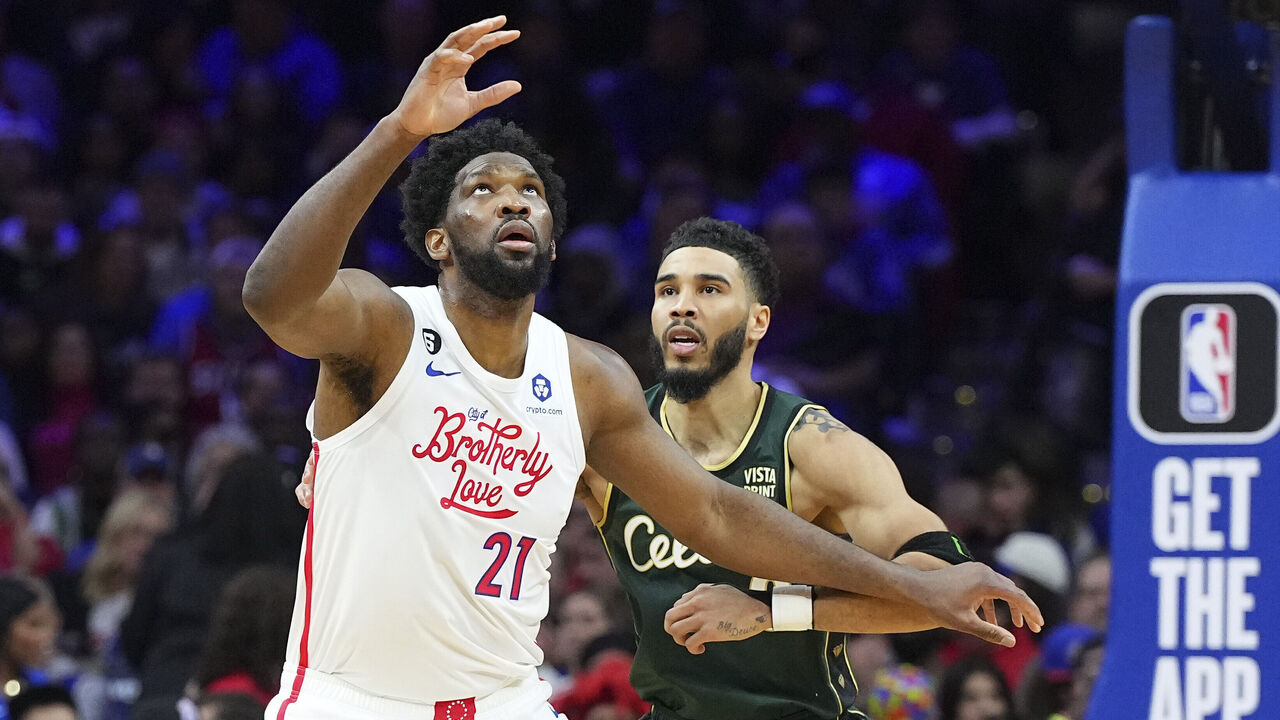
The only two teams who unequivocally met every regular-season prerequisite of an NBA champion were the Celtics and 76ers. Interestingly enough, Boston and Philadelphia are on a second-round collision course. If the numbers prove correct, an Eastern Conference semifinal matchup could prove to be an unofficial championship series. By winning the franchise's 18th title, the Celtics would once again pull ahead of the Lakers for the NBA's all-time lead. Meanwhile, the Sixers are looking for their first championship since 1983; they're also currently mired in the league's fourth-longest conference finals drought (2001).
Potential outliers: Bucks, Suns, Lakers
The Bucks finished with the NBA's best record and have the luxury of employing the player many believe to be the best player in the world today, but they came just short of fully qualifying. Then again, the only thing holding Milwaukee back was a point differential that fell just shy of past championship benchmarks. Given that the Bucks still finished in the top five in that category, the underwhelming figure (+3.6) likely had more to do with how uniquely balanced this season was than it did with any fatal Bucks flaw.
As for the West's top seed, Denver's middling defense and uninspiring play away from the Mile High City serve as red flags. The Nuggets' 15th-ranked defense would be the worst championship D since the 2001 Lakers finished 22nd in defensive efficiency. But Los Angeles was 25-16 on the road during the 2000-01 season, while the 2022-23 Nuggets were 19-22. Not to mention, the 2001 Lakers were an all-time team on their way to a championship three-peat, with Shaquille O'Neal and Kobe Bryant at the apex of their collective powers. That Lakers team was good enough to flip the switch come spring and rip off a 15-1 postseason run en route to the title. With all due respect to two-time MVP Nikola Jokic and Co., the Nuggets are unlikely to find that switch.
As mentioned countless times over the course of this exercise, the current iterations of the Suns and Lakers resemble genuine contenders, but their season-long metrics don't do them justice. The degree to which each team was reconstructed mid-season is rare. If either Phoenix or Los Angeles goes on to win the 2023 title, it'd throw a wrench into this data going forward.
Just happy to be here: Knicks, Hawks, Bulls, Nets
New York and Atlanta are the only surefire playoff teams to not check at least one box, with Chicago still needing to win in Miami on Friday night to book a date with Milwaukee. The Bulls' nonexistent shot at a title is made worse by the fact the team will send its (top-four protected) first-round draft pick to Orlando to complete its 2021 trade for Nikola Vucevic, which also cost Chicago Wendell Carter Jr. and the 2021 pick that turned into Franz Wagner.
After trading Durant and Irving two months ago, the Nets belong in this space, too. Their one championship-level trait (offense) has nothing to do with the current roster. However, it'll be fun to watch how Mikal Bridges fares in his first taste of playoff action as his team's top offensive option after serving as more of a role player in Phoenix.
For what it's worth, I found clutch-time performance (on either end), free-throw attempt rate, and rebound rates weren't great indicators of a team's postseason fortunes.
Joseph Casciaro is theScore's senior content producer.